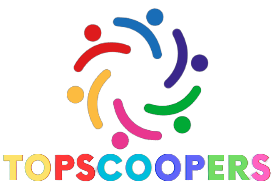Introduction
In today’s digital age, the field of computer science is a powerhouse of innovation, problem-solving, and endless opportunities. Pursuing a Bachelor of Science (BSc) in Computer Science is a gateway to a world driven by technology. In this article, we’ll explore what BSc Computer Science encompasses, delve into its subjects, and briefly touch upon the relevance of a diploma in computer science.
What is Computer Science?
Computer Science is a multidisciplinary field that deals with the study of algorithms, data structures, and computer systems. It forms the backbone of our modern world, shaping everything from the software that runs our smartphones to the complex systems driving artificial intelligence.
BSc Computer Science Subjects
A BSc in Computer Science typically covers a wide range of subjects, providing students with a comprehensive understanding of the field. Here are some key subjects commonly found in BSc Computer Science programs:
- Programming: Programming is the heart of computer science. Students learn languages like Python, Java, C++, and more. They acquire skills to write, debug, and optimize code.
- Data Structures and Algorithms: Understanding how data is organized and manipulated is crucial. Students delve into data structures and algorithm design, key for efficient problem-solving.
- Database Management: This subject focuses on the creation, maintenance, and optimization of databases. It’s essential for handling large volumes of data.
- Operating Systems: Operating systems are the interface between users and hardware. Students learn about their functionality and management.
- Software Engineering: This subject explores the software development process, emphasizing design, testing, and project management.
- Computer Networks: In a world connected by the internet, understanding how data is transmitted is essential. Computer networks delve into this critical subject.
- Artificial Intelligence (AI): AI is a burgeoning field. Students get an introduction to machine learning, neural networks, and AI concepts.
- Cybersecurity: With the rise in cyber threats, cybersecurity is a vital subject. Students learn how to protect systems and data.
- Web Development: Building websites and web applications is a skill in high demand. BSc Computer Science programs often include web development.
- Human-Computer Interaction: This subject is about understanding how people interact with computers and designing user-friendly interfaces.
Diploma in Computer Science
A diploma in computer science can be a stepping stone to a BSc in Computer Science or a standalone qualification, depending on the program. While it may not be as extensive as a full degree, it offers foundational knowledge in computer science. A diploma covers essential programming skills, an introduction to algorithms, and often includes practical hands-on experience. This can be a good choice for those seeking a quicker entry into the workforce or considering a career change.
The Relevance of a Diploma in Computer Science
- Quick Entry: Diplomas are shorter in duration than degrees, allowing you to enter the workforce sooner.
- Practical Skills: Diplomas focus on hands-on skills, making you job-ready upon completion.
- Affordability: Diplomas are often more budget-friendly compared to a full degree.
- Career Change: If you’re looking to transition into a tech career, a diploma can provide a foundation without the commitment of a full degree.
- Step Toward a Degree: Some diploma programs offer credits that can be applied to a full BSc in Computer Science if you decide to continue your education.
In a rapidly evolving job market, both BSc Computer Science and a diploma in computer science have their unique advantages. Your choice depends on your career goals and the time and resources you can invest.
Conclusion
Computer Science, whether pursued as a full-fledged BSc degree or as a diploma, opens doors to exciting career prospects. In the BSc Computer Science program, students explore an array of subjects, from programming to AI, which equip them with the skills required to thrive in the digital world. On the other hand, a diploma in computer science provides a quicker and cost-effective path to start your career. Both options are valuable, and the right choice depends on your individual aspirations and circumstances.
The world of computer science is vast, dynamic, and ever-expanding. It’s not just a field of study; it’s a gateway to innovation and a multitude of career possibilities. Whether you choose to pursue a BSc or opt for a diploma, you’re embarking on a journey that’s at the forefront of shaping the future.

